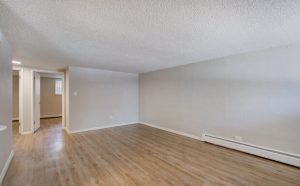Lakshman Mody looks at how artificial intelligence is helping shape the way that properties can be marketed like never before.
Residential estate agency marketing, traditionally reliant on physical staging, is undergoing a digital revolution and at the forefront of this change is the introduction of virtual furniture staging powered by Artificial Intelligence (AI).
The evolution of estate agency marketing has been significantly influenced by the transition from physical to virtual staging. Initially, property marketing relied heavily on physical staging, where spaces were furnished for in-person viewings and photography.
In the United States, estate agents reported a number of benefits from this, most importantly a 1% to 5% increase in the sale price of a property.
SURGED IN POPULARITY
However, in recent years, virtual staging has surged in popularity, particularly following the global pandemic when clients were unable to view properties in person.
Unlike physical staging, virtual staging primarily involves enhancing photographs of empty rooms using software like Adobe’s Photoshop. This task is traditionally performed by human graphic designers but the advent of AI technology means that this process is rapidly changing.
AI virtual staging has brought about a significant reduction in costs and a remarkable increase in speed relative to traditional virtual staging.
AUTOMATICALLY GENERATED
These efficiency gains are primarily due to the fact that the virtual staging work is automatically generated instead of being developed manually by a human. This is why the industry is trending towards a future where most property images seen online will likely be AI-staged.

A kitchen before AI staging.

A kitchen with AI furniture.
From my interviews with estate agents and real estate photographers it’s evident that staging practices vary significantly depending on the property’s value.
While nearly 90% of the agents I spoke with use some form of staging, those dealing with properties above $1 million (USD) typically prefer physical staging. In contrast, I found that agents handling properties in the $400,000 to $1 million (USD) range usually opt for classic virtual staging.
SIMPLE STAGING
Properties below $400,000 (USD) often go unstaged, despite evidence suggesting that even simple staging can significantly impact the property’s perceived value.
So while online images of properties above $1 million (USD) will likely continue to show real furniture, you should expect that online images of properties under $1 million (USD) will soon only show AI-generated furniture.
Asset managers and property managers are also impacted by these forces. Historically, large high end apartment buildings have used a physically staged model unit or classic virtual staging. On the flip side, less expensive properties have not had a cheap enough solution to stage a property and may reuse the same virtually staged images across different floor plans.
TECHNOLOGY SOLUTIONS
But now with costs becoming far cheaper, asset managers are increasingly looking to their property managers to find technology solutions to attract prospective renters.

A living room before staging.

A living room with AI furnishings.
Stable Diffusion, released in August 2022, is trained on the LAION dataset, which contains a library of interior designs and furniture styles, enabling the AI to generate images that resonate with a property’s character and potential buyer preferences.
The next wave of AI image editing innovations in residential estate agency marketing is poised to transform how properties are showcased, yet there is still quite a bit that requires a human touch.
BEST QUALITY
First, property photographers will still need to continue taking photos of properties. Second, higher end staging jobs that require the best quality will still require a human to strategically place furniture in a manner that is consistent across all images of a property.
Besides the image quality, real estate platforms will start to explore dynamic staging techniques, where the furniture used in online images can be altered based on the prospective client’s preferences.
This personalisation extends even further, with the potential for renters or buyers to stage images themselves, rather than relying on the platform, estate agents or property managers.
CONVENIENCE AND CUSTOMISATION
Imagine the convenience and customisation of being able to virtually place your own furniture, or pieces you’ve found online, into an online property listing with a single button click.
The integration of AI into residential real estate marketing, particularly through virtual staging, is a major trend that will continue to grow.
As we look ahead, we should expect that images of properties online will largely be staged with AI, helping a greater number of prospective buyers and renters to find their dream property.
Source: thenegotiator.co.uk











